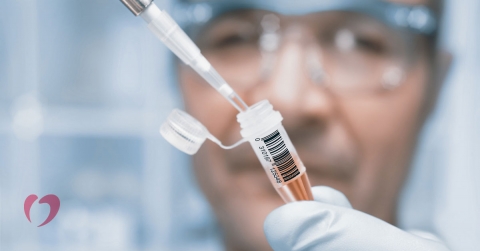FAQ: Clinical Research Trials

Clinical research trials are an important step in creating and testing new procedures and medicines to treat a wide range of health conditions. But what exactly goes into them? These are frequently asked questions about clinical research trials at Oklahoma Heart Hospital.
Who is eligible for a clinical research trial?
The short answer is: it depends.
Different clinical trials will have different requirements for who can participate. Eligibility is strict and includes criteria like age, gender, medical test results, medicines you take, health problems, pre-existing conditions, and more.
Who runs a clinical research trial?
If you’re participating in a clinical trial at Oklahoma Heart Hospital, your regular medical team will continue to be in charge of your care. But you’ll also be in regular communication with principal investigator and a clinical research coordinator.
A principal investigator oversees the trial as a whole and makes sure that everyone participating follows the plan. The clinical research coordinator teaches the patients about the trial and collects data from them. If participants have questions, the coordinator is the person to talk to.
What exactly happens in a clinical research trial?
When you participate, you are choosing to try out a medication or treatment that’s still in the trial phase. You will be fully briefed on both the risks and the benefits involved, and the staff will monitor you throughout treatment for any adverse side effects. You will be asked to sign an informed consent form that verifies you’re aware of the trial and the risks involved. You then take whatever medicines or undergo whatever procedures you’re asked to do for the clinical trial.
When are you finished with the trial?
It depends on the trial itself. The clinical research coordinator will discuss full details and duration of the trial before you agree to participate and sign the informed consent form.
Will there be compensation?
Some studies (especially Phase I studies with healthy volunteers) will compensate people monetarily for participating. Some studies offer compensation if they suffer harm through the study. Others are completely voluntary.
Is there a risk to participating?
Any clinical research trial involves a certain level of risk. Your medical team will make you aware of what risk is involved so you can make the best decision. Some people participate in clinical trials because the treatment offers hope for their specific condition, and they are willing to assume the risk. Others participate because they want to help future patients with their same condition have better options for treatment and are willing to assume the risk.
Participating in a clinical trial is a big decision to make. If you’re interested in clinical trials at Oklahoma Heart Hospital, visit the Oklahoma Heart Hospital Research Foundation page for complete details about upcoming trials.




